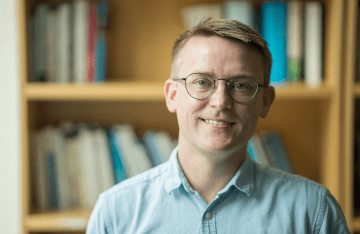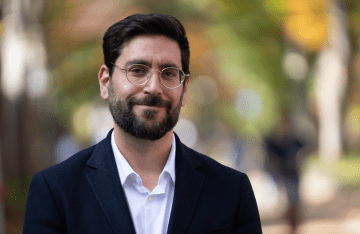Annenberg Scholars Program in Culture and Communication Welcomes Douglas and Hesmondhalgh
Susan Douglas (University of Michigan) and David Hesmondhalgh (University of Leeds) will be Fall 2016 visitors.

When Susan Douglas was entering her Ph.D. program in the late 1960s, the idea of choosing media studies as a scholarly path would have drawn contempt from most academics. One asked Douglas if she was planning to read comic books all day.
“You had to be out of your mind to study something that was so banal and evanescent as popular culture and the media,” she says.
But Douglas was on the leading edge of a new school of thought. She saw how television was becoming a critical tool to shape public knowledge of the civil rights and women’s movements, anti-war demonstrations and the first Earth Day. Media studies mattered crucially, she realized.
And as she began to watch more television, she was even more convinced. “It was like picking up a rock and discovering how much you didn’t know was there,” she says.
Douglas, now the Catherine Neafie Kellogg Professor of Communication Studies at the University of Michigan, recently ended her 11-year tenure as Chair of the Communication Studies Department. This semester, she is one of two visiting scholars through Annenberg’s Scholars Program in Culture and Communication, which is directed by Barbie Zelizer.
Needless to say, Media Studies has evolved into a well-respected field, and Douglas herself a well-respected scholar in it. She is author of five books, including The Rise of Enlightened Sexism: How Pop Culture Took Us From Girl Power to Girls Gone Wild (St. Martin’s Griffin, 2010); The Mommy Myth: The Idealization of Motherhood and How it Undermines Women (with Meredith Michaels, The Free Press, 2004); Listening In: Radio and the American Imagination (Times Books, 1999), which won the Hacker Prize in 2000 for the best popular book about technology and culture; Where The Girls Are: Growing Up Female with the Mass Media (Times Books, 1994).
At Annenberg, she will teach a course called “Gender, Life Cycle and the Media,” an exploration of how the media portrays different demographics and age groups of men and women. She will also give a public lecture on March 1.
The second Visiting Scholar this semester is David Hesmondhalgh — and that’s pronounced “HEZ-mun-dalch,” though he doesn’t mind if you get it wrong. (“The name comes from East Lancashire. And so do I,” he notes on his website.)
That early life in Northern England imparted Hesmondhalgh with a love for pop culture that ultimately led to his career as a Professor of Media, Music and Culture in the School of Media and Communication at the University of Leeds.
Through radio and television, he says, he went through a number of musical phases: Elton John at age 11, Led Zepplin at age 13, punk and post-punk in his mid to late teens. He also reflects back on how he was influenced by magazines and newspapers, often soaked up at the local library, a place that held “strange beauty and wonderment” for him.
He was particularly shaped by one publication: “I loved and detested the Daily Mail,” he says. “It gave me a belief in the life-enhancing qualities of media and an equally avid sense of how commercial media can conceal, lie, and distort.”
Among the many strands of his research, Hesmondhalgh studies cultural production and how TV, films and music, come to sound and signify in the way that they do. He is also interested in the labor of people who work in culture production and the laws that shape cultural policy. He is also interested in music, not only in the industry and people who work in it, but the place of musical experience in modern life.
He is the author (with Kate Oakley, David Lee and Melissa Nisbett) of Culture, Economy and Politics: the Case of New Labour (Palgrave Macmillan UK, 2015), Why Music Matters (Wiley-Blackwell, 2013), Creative Labour: Media Work in Three Cultural Industries (Routledge, 2011, co-written with Sarah Baker) and The Cultural Industries, now in its third edition (Sage Publications, 2013).
This semester, Hesmondhalgh will teach the course, “Music, Media and Communication,” which explores music as a mode of human interaction with particularly strong links to the emotions and affect. He will give a public lecture on February 16 as well.



